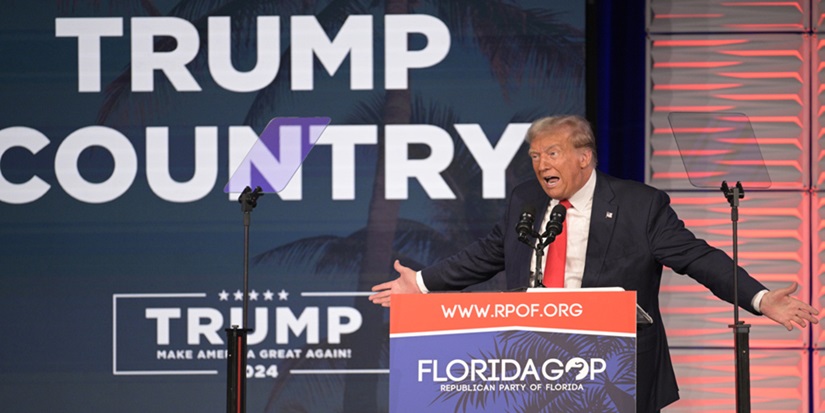Donald Trump says import tariffs are awesome. He promises more of them if he wins next month’s election.
Kamala Harris criticizes him for this, but she’s no free trade fan, either. The Biden-Harris administration kept many of the tariffs from Trump’s previous term and even added a few more.
You might think everyone agrees on tariffs. But how they do it matters.
Let’s first define the term. A “tariff” is a tax on imported goods. Say a US company buys a million dollars’ worth of widgets from China. When the widget ship arrives in Long Beach, US Customs agents inform the importer it owes a 50% widget tax. Pay up or the government will seize your stuff.
Note who pays this tax: the Americans who imported the widgets. China doesn’t pay. I know Trump says otherwise. He is wrong.
The importer doesn’t necessarily have to raise the price when it resells the widgets to US consumers. It could decide to eat the tariff cost. But one way or another, Americans pay the tax.
Most economists agree tariffs are bad. Everyone is better off when goods flow across borders as freely as possible. Adam Smith wrote about it in The Wealth of Nations. David Ricardo later refined this idea into the “comparative advantage” principle. He said every country should focus its efforts on producing whatever it does best, while importing those goods it can get more cheaply from abroad.
However…
For very good reasons, we don’t let economists run the government. They’re right that “free trade” is economically beneficial. But it also has side effects, which can be problematic.
Much depends on exactly what we’re importing. Not every product is equally critical. If someone cuts off, say, our foreign lawn chair supply, it’s survivable. We can all sit on the grass (which might actually be a good thing).
Being dependent on other countries for computer chips and pharmaceutical components is a bigger problem… particularly if the source is also a potential adversary like China.
Depending on friendly countries may not be great, either, as we learned when COVID slowed shipping times.
The government’s most basic job is to protect national security. Depending on possibly unreliable suppliers for critical goods is a risk to everyone, even if some businesses make money from it.
Notice I keep using this word “depending.” That’s really the core issue. Depending on someone means you trust them. Trust has limits.
Presidents can and should make sure the US doesn’t become dangerously reliant on imports. But here’s the rub: how a president does this makes a giant difference. Mistakes can create other problems.
For example, the more we do to discourage imports, the less other countries will be interested in buying our exports. That’s a problem for many US businesses.
And the dollars we send overseas to pay for our imports are the grease that keeps the global economy moving. Cut off that currency flow, and some bad things could happen.
We have two competing imperatives. We want to…
Both are important. What to do?
Developing policies to meet both goals is incredibly complex. The details matter.
Tariffs are just one tool. Sometimes they make sense, but using them as an indiscriminate blunt instrument probably won’t end well.
The president, whoever it is, has to make trade-offs between economic growth and national security. Keeping the right balance is a nonstop stream of hard decisions.
As voters and investors, you and I should ask who will deliver a careful strategy that actually works. And it’s not just the president but also the people they hire.
One more thing to remember …
Under current law, presidents have broad executive authority to impose tariffs on imported goods. They don’t need permission from Congress or anyone else. They can just do it.
If Trump becomes president again, he will have the ability to impose all the giant tariff taxes he’s threatened. And if Harris wins, she will, too.
We are about to hand one of those people unilateral power to raise taxes. Congress has to approve other kinds of taxes but not tariffs. The House and Senate surrendered that authority decades ago.
Worse, we’ll be handing them the power to tax some people but not others, for whatever reasons they like.
These choices will be in one man’s hands—or one woman’s hands.
Who do you trust with that kind of power?
See you at the top,





